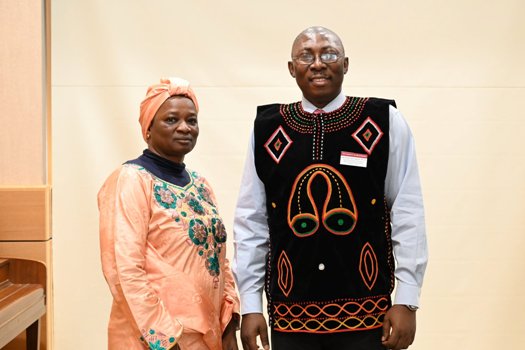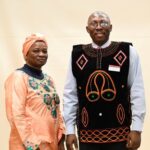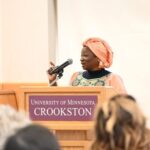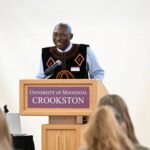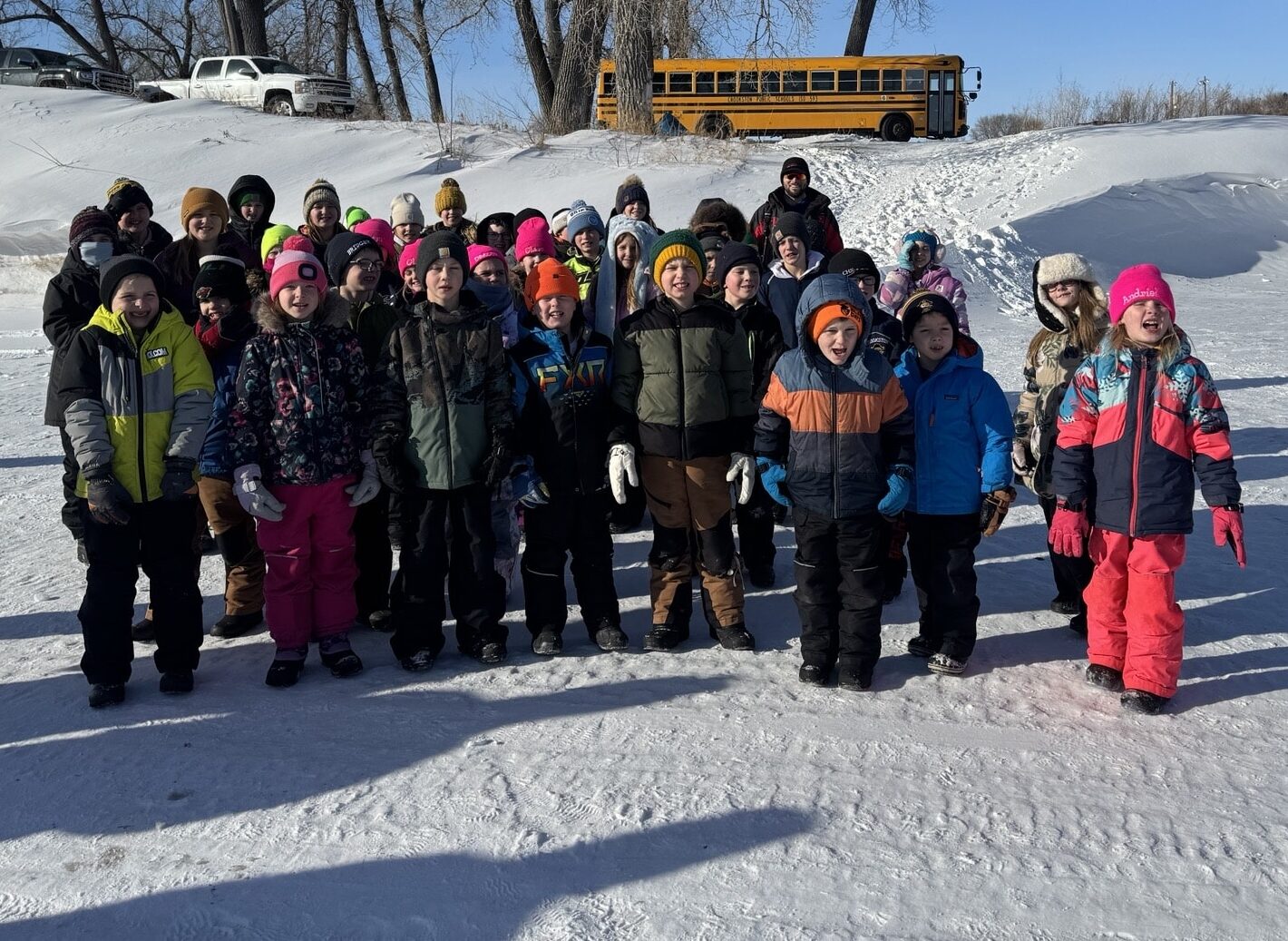The University of Minnesota Crookston is fast gaining an international reputation. In addition to attracting students from all around the world, UMC is also attracting faculty from different countries to teach and conduct research at UMC. This academic year UMC has hosted Kahirou Diakite, a teacher-researcher at the University of Science and Technology in Bamako, Mali and Kennedy Nyongbela, a senior lecturer of chemistry, University of Buea, Cameroon. The two scholars received the prestigious Fulbright scholarships for a period of 5 and 10 months respectively.
The Fulbright program was established in 1946 under legislation introduced by Senator J. William Fulbright of Arkansas. The Fulbright Program is sponsored by the U.S. Department of State’s Bureau of Educational and Cultural Affairs. J. William Fulbright said, “The essence of intercultural education is the acquisition of empathy – the ability to see the world as others see it, and allow for the possibility that others may see something we have failed to see, or may see it more accurately. The simple purpose of the [Fulbright] exchange program…is to erode the culturally rooted mistrust that sets nations against one another.”
In addition to her teaching, Diakite is an active member of her social and professional communities back in Mali. She is a member of the Network of Women University Teachers of Mali (REFEUMA) and the West African Chemistry Society (SOACHIM). Diakite works for the association for the defense of women’s rights, the main objective of which is to promote girls’ access to science. Her research interests align with her concerns. Dyeing clothes is a small-scale industry in Mali and women make up the majority of the workforce in the industry. Large amounts of the dyes used in the industry are not adsorbed by clothes, enter into wastewater streams, and increase pollution. At Crookston, she is studying the ability of certain natural minerals to absorb various dyes. She hopes to identify a mineral that absorbs many dyes under normal conditions. Her research, therefore, has the potential to reduce pollution.
Diakite said the facilities at the Center for Collaborative Research enabled her to complete a major portion of her research project in a short time. She was greatly impressed with the amiability of the UMC community and beamed ‘everyone had a warm smile for her’. Associate Professor Venu Mukku, the faculty host of the two scholars, says that is exactly what Senator Fulbright intended: promotion of goodwill via academic exchanges.
Kennedy D. Nyongbela, another Fulbright Scholar at UMC, is a senior lecturer of chemistry and head of service for Equipment, Materials, and Maintenance at the University of Buea, Cameroon. He has taught organic and pharmaceutical chemistry courses at the University of Buea and other higher institutions in Cameroon for the past 10 years. Nyongbela has been awarded the US Fulbright Fellowship twice. First in 2014 – 2015 to carry-out research on some medicinal plants of Cameroon in the laboratory of Professor Thomas Hoye at the Twin Cities Campus and in 2019 he was awarded the Fulbright Scholar-in-Residence (SIR) Fellowship to lecture and carry-out research at UMC.
Nyongbela has taught elementary bioorganic chemistry to agronomy, animal science and equine science majors in the fall semester. Moreover, he is teaching a new course titled ‘Chemistry in Context’ in the spring semester. “My Fulbright SIR experience at UMC has furthered my belief that there is strength in diversity,” mentioned Nyongbela. During his ‘free’ time, he is working with 3-4 students to identify plant extracts that inhibit the activity of protein kinase A. Protein kinase A is one among many kinases that are implicated in carcinogenesis and Mukku and Nyongbela think under-investigated plants may harbor potential treasure troves.
“The presence of our two Fulbright scholars has been a great experience for our students, faculty, and staff. Hearing their unique perspectives on life in Africa gives the UMC community a new appreciation for international collaborations and opportunities,” said Anthony Kern, Unit Head for Agriculture, Natural Resources, Math, Science, and Technology. “It also shows that science can serve as a wonderful bridge between nations to address many of the world’s pressing problems.”
The intercultural exchange made possible by the Fulbright program is something that is ever-growing and is of utmost importance in today’s social climate. Through this, as the founder said, communities learn to place themselves in others’ shoes and see the world through new perspectives.

